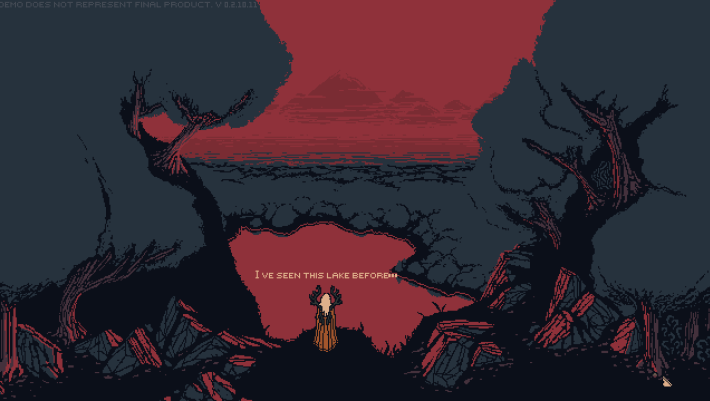After spending almost two hours with the Death Howl demo, I realized that the most important aspect of any so-called “soulslike” video game is the vibes.
I have long loathed the descriptor “soulslike” because it so frequently refers to kinds of games I hate to play by comparing them to a series of games that I love: Dark Souls and the other offerings from FromSoftware. Often “soulslike” is meant to call attention to the mechanical similarities between whatever game and Dark Souls—the game may have limited checkpoints, a resource you gain from bosses that is lost upon death, or particularly challenging combat. Rarely do games like that scratch my Dark Souls itch, because what attracts me to those games is not the broad mechanical designations, but the more idiosyncratic design choices paired with a stark, impressionistic approach to storytelling.
Death Howl did actually evoke Dark Souls for me. As a self described “soulslike deckbuilder,” it hits those mechanical signposts—it has bonfires that respawn combat encounters, and you can use the “howls” you earn from enemies to craft more cards—and is atmospheric in a way I long for when I play any game.
You play as Ro, a mother who has lost her son and is trying to find his soul before he fully departs to the land of the dead. While the demo only shows off one portion of the map, it’s fairly generous. Using a limited color palette and simple but evocative pixel sprites, the game lures you into a richly imagined world inspired by Scandinavian folklore. Death Howl does a lot with a little—sparse but ominous music and the deep red tones that the game is rendered in do a lot of work to evoke a feeling of death and decay. The economy of art and dialogue gave me that Dark Souls feeling of being trapped, out of my depth, in a dying world. Occasionally it even scared the shit out of me. Stumbling upon this part of the map briefly made my heart pound with fear—in motion, the leaves of the trees quiver uncannily, as if they too are watching you trespass into death’s realm.

As a deckbuilder, the other “soulslike” trademarks are also translated in new ways. As Ro explores the map, she finds grids on the ground where enemies are. As soon as she steps onto the grid, it triggers a turn-based combat encounter. Ro fights these enemies by drawing cards from a deck, representing her attacks. As much as this reminds me of other deck builders like Slay The Spire, there are Souls-esque idiosyncrasies that make it stand apart.
Just like the way you can’t cancel a combat animation once you press a button in Dark Souls, once you play a card or move Ro on the board in Death Howl you cannot undo it. You have to commit to the decision you made, even if you understand your mistake as soon as you’ve made it. Instead of asking me to play in a way that is mechanically similar to Dark Souls, I feel like I’m playing a game that requires me to think in the same way that I do when I play Dark Souls. Is this the right time for this attack? Do I really want to stand here? Do I have enough health to make the run back between this bonfire and the boss I want to beat? The entirety of the game becomes a puzzle.
Death Howl is available to wishlist on Steam and has a demo. I think I’ll be returning to that demo again—at least until another game comes out that really scratches my Dark Souls itch.


